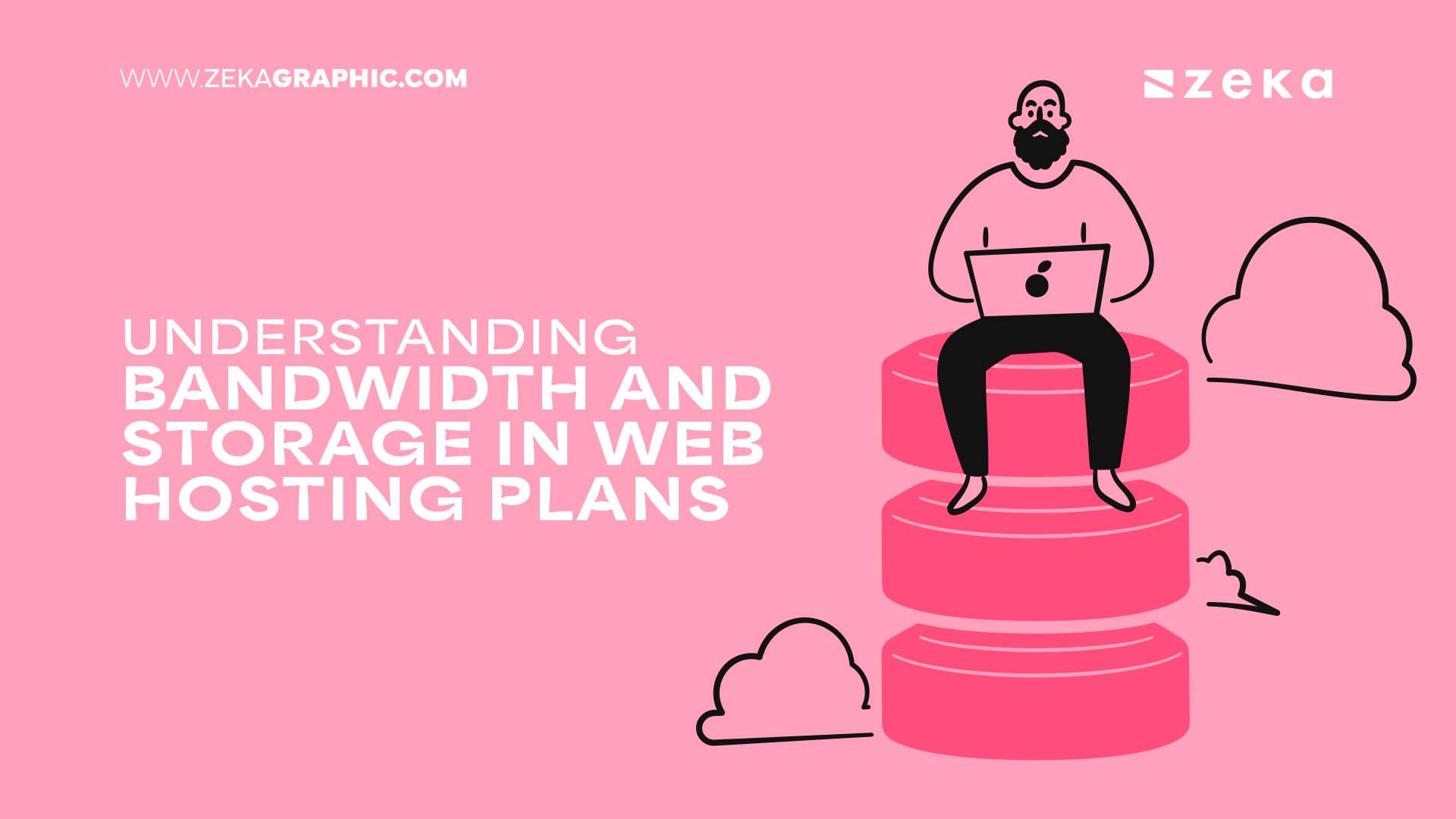
Looking for the optimal web hosting plan for your small business operations?
Your business’s online presence depends heavily on choosing the correct web hosting plan. This decision-making process revolves around two essential elements.
Lack of understanding about bandwidth and storage will likely cause unnecessary expenses and hinder your website’s growth.
This article explains all essential details about bandwidth and storage to guide you in making an informed choice for web hosting plans tailored to your small business requirements.
What You’ll Discover:
Advertisment
Every website needs bandwidth and storage since they serve completely different purposes which are fundamental to website operation.
Let’s break it down:

Storage represents the disk space quantity that your website files occupy. The storage space for your website functions as a digital filing cabinet for the following items:
A hosting provider’s “50GB of storage” advertisement specifies the entire capacity of data storage available on their servers for your website.
Bandwidth is quite different. Bandwidth measures how much data your website can send to visitors within a set timeframe, which is typically measured monthly.
Every time someone visits your website:
All of these actions consume bandwidth. As your visitor count grows alongside the expansion of your website files your required bandwidth will increase.
Advertisment
Small businesses setting up their online platforms need to understand these resources to achieve success. Many CLDY advanced hosting plans offer scalable solutions that grow with your business, ensuring you’re not paying for unnecessary resources while still having room to expand.
Here’s why getting these resources right matters:
Let’s look at the bigger picture. The forecasted $69.68 billion in U.S. web hosting revenue for 2025 illustrates the significant growth of this industry. The plethora of web hosting options requires business owners to understand core components to effectively compare plans that meet small business requirements.
Small business owners tend to overspend because they lack knowledge of how to determine their actual requirements. Use this straightforward calculation to determine monthly bandwidth requirements.
The monthly bandwidth requirement is determined by multiplying average page size by average daily visitors and average pages visited over 30 days then adding a 30% buffer.
For example:
Advertisment
Assessing storage requirements is a simpler task yet holds equal significance.
Small business websites typically begin with between 5-10GB of storage capacity and expand as needed.
Hosting options differ in their bandwidth and storage capacities. Here’s a quick comparison:
The global trend is clear: Market analysts predict the global web hosting sector will reach $192.85 billion by 2025 because cloud hosting solutions are driving this expansion with their adaptable features.
Advertisment
Have you ever come across hosting plans that claim to offer “unlimited” bandwidth or storage? Here’s the truth:
All resources have finite limits despite claims of being unlimited. What providers really mean is:
Identify these warning signs while comparing web hosting plans for small businesses:
It is crucial to recognize these warning signs when evaluating web hosting plans designed for small businesses.
The least expensive web hosting plan for small businesses often fails to deliver optimal long-term value. These considerations become even more important since web hosting expenses per employee will likely reach about $400 by 2025.
The best hosting plan for your small business emerges through careful selection.
Multiple reputable web hosting providers exist to help small businesses compare hosting plans after seeing that North America leads the global web hosting market with 42% share in 2023.
Advertisment
Your website’s performance relies fundamentally on bandwidth and storage capabilities. A thorough assessment of your resources and needs enables you to choose a hosting plan that optimizes both spending and performance.
As your business expands you will need to adjust your hosting requirements. The perfect hosting provider supplies adequate resources for current demands and demonstrates scalable growth opportunities for the future.
Advertisment
Pin it for later!

If you found this post useful you might like to read these post about Graphic Design Inspiration.
Advertisment
If you like this post share it on your social media!
Advertisment
Want to make your Business Grow with Creative design?
Advertisment
Advertisment